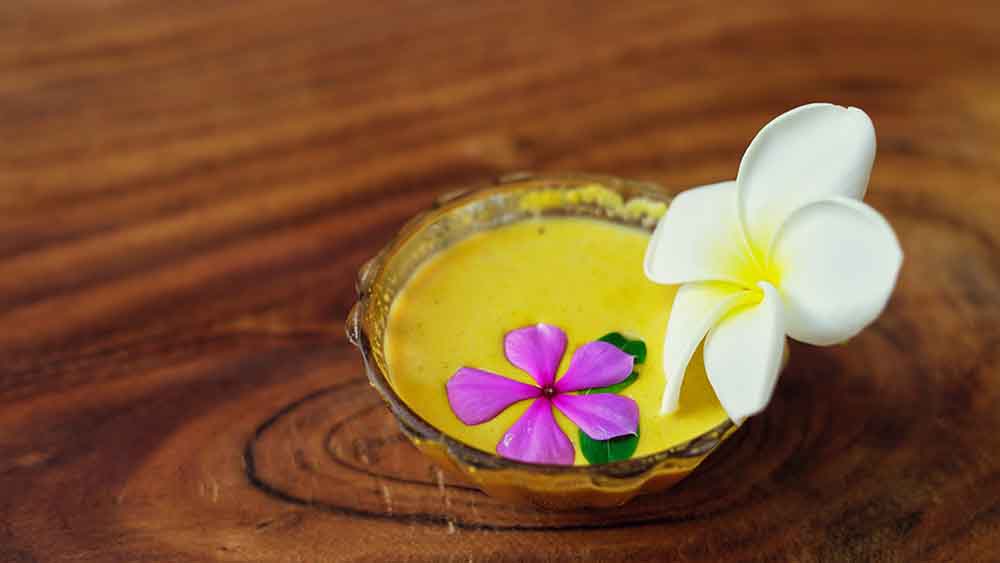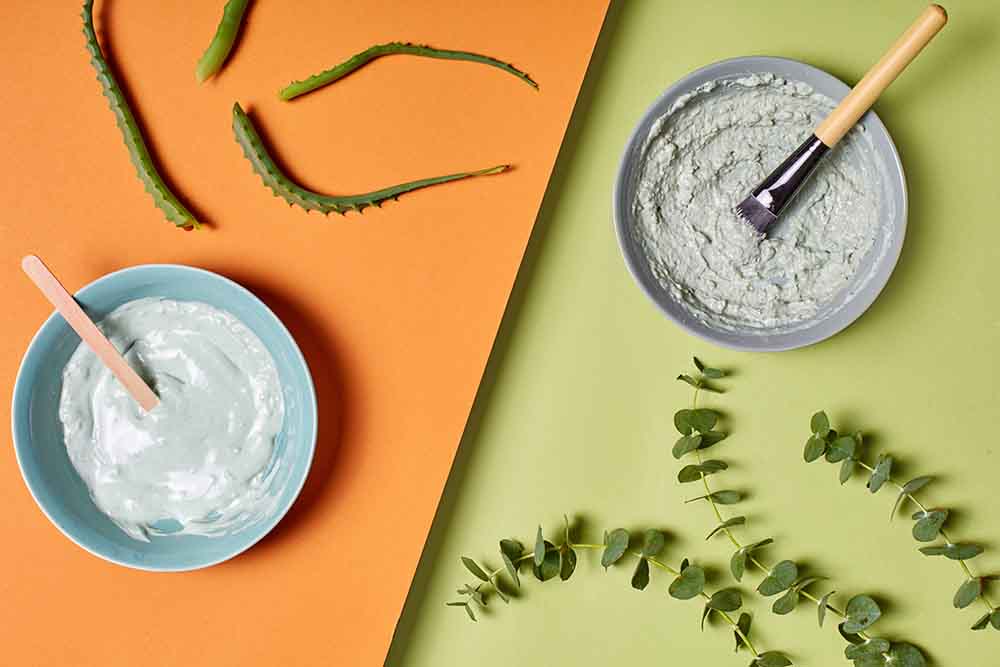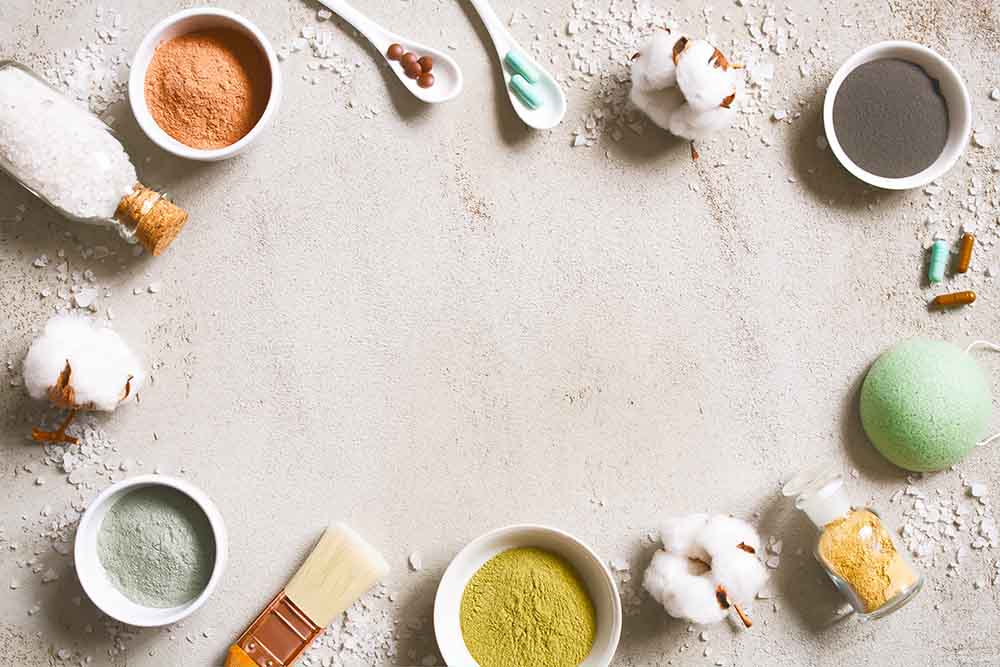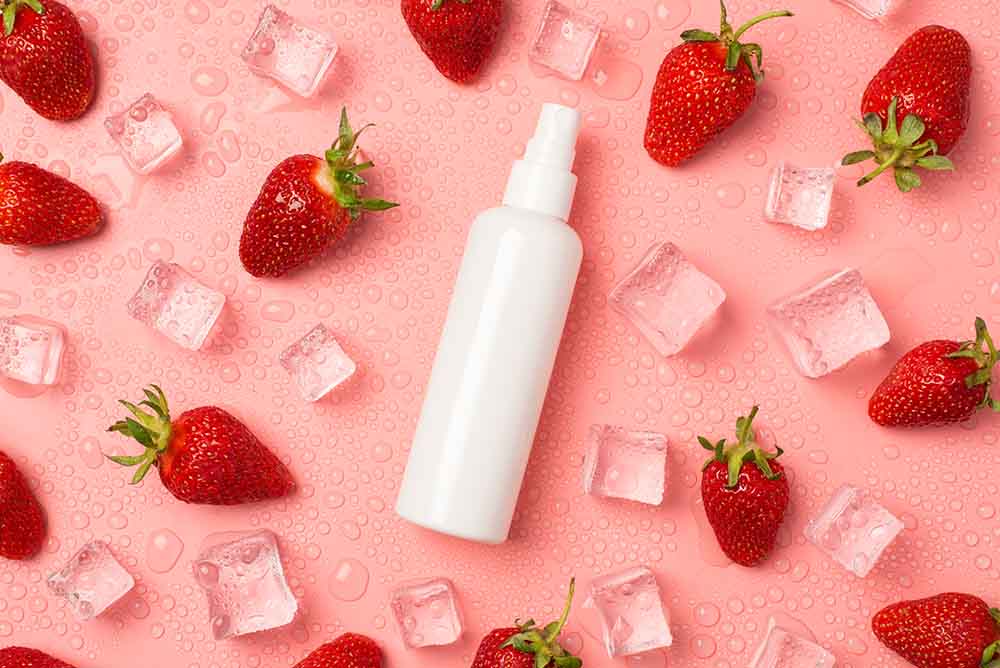Using ingredients from nature to cleanse, exfoliate, moisturise or protect the skin is part of a natural skincare routine that eliminates chemical components entirely. This also includes natural face masks. These skincare routines are sure to help the skin glow, stay healthy or remove any blemishes, allergies or acne. However, you also need to factor in your lifestyle choices - proper hydration, diet, stress management, sleep and exercise that contribute to healthy skin.

Why should you opt for natural skincare ingredients?
• They are gentler on the skin, unlike chemical products that have synthetic fragrances and other components that can irritate the skin
• You will observe fewer irritants and allergic reactions since the natural products will impact your skin lesser.
• The natural skincare products are environmentally friendly, since they’re biodegradable.

• These ingredients are rich in nutrients such as plant oils, butters, and extracts, and are packed with vitamins, antioxidants, and other beneficial compounds that can nourish and revitalise the skin.
• They’re effective for various skin concerns since they can be formulated to address specific issues like oiliness, dryness, acne, or ageing.
• Cruelty free and ethical practices are prioritised by many natural skincare brands, which means these products are not tried on animals.
• Long-term skin health is caused by the avoidance of harsh chemicals and the use of natural and nourishing ingredients, leading to long-term glowing, resilient and healthier skin.

It’s time now to deep dive into ways to develop natural skincare habits:
1. Cleansing - Opt for a mild cleanser –with ingredients like raw honey, aloe vera extract, chamomile extract or tea tree oil to remove impurities from the depth, without stripping the skin of its natural oils.
2. Exfoliation (occasionally) - Skin exfoliation should ideally be done 2-3 times a week to remove dead skin. Natural exfoliants in the form of sugar, oatmeal or a gentle scrub can be used.
3. Toning - To balance the skin’s PH and let it hydrate, rose water or green tea can be used with the help of a cotton pad or a clean cloth.
4. Moisturisation - It's essential to moisturise the skin with plant-based products like shea butter or jojoba oil in order to protect and hydrate the skin.

5. Sun Protection - A natural broad-spectrum sunscreen with zinc oxide or titanium dioxide can be used to protect the skin from the harmful effects of sun’s UV rays.
6. Face Masks (optional) - Homemade face masks with Multani Mitti are grear for oily skin whereas a cucumber mask is ideal for hydration. You can apply either of them on your face for the recommended time and then rinse off with cold or lukewarm water.
7. Serum (optional) - Serums with concentrated plant-based ingredients address specific skin concerns. Be mindful and always seek expert advice before you decide on what to use. Usually serums with ingredients like hyaluronic acid, vitamin C, or plant-derived extracts are recommended.
8. Eye Cream (optional) - To protect and hydrate the delicate skin around the eyes, try organic eye creams with ingredients like aloe vera, cucumber or chamomile. A small amount can be gently patted around the orbital zone.

A few important considerations:
1. Identify your skin type - You need to be very sure of your skin type, whether it is dry, oily, a combination of both, sensitive or not, in order to choose the right products for your skin.
2. Patch test new products - You must never think of taking a chance with something as sensitive as your skin. Always take a small portion of the product and apply it on a small area of your skin to check if it suits you.

3. Be consistent - You must be proactive and consistent to care for your skin in order to see the best results over a period of time.
4. Listen to your skin - Be cautious and notice how your skin responds to different products. Accordingly decide to continue the product in your regular skincare routine.